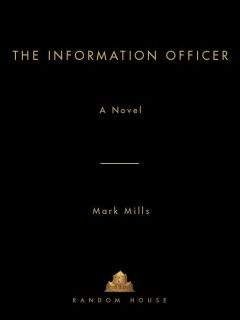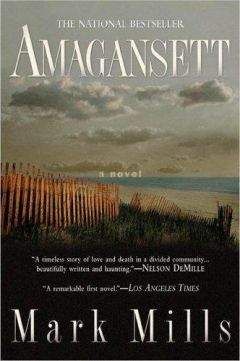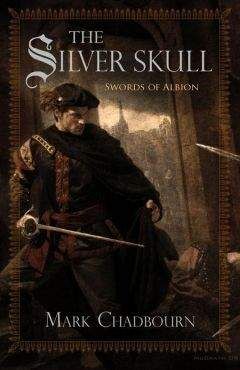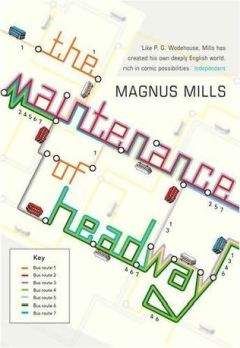Mark Mills - The Information Officer
На электронном книжном портале my-library.info можно читать бесплатно книги онлайн без регистрации, в том числе Mark Mills - The Information Officer. Жанр: Прочее издательство неизвестно, год 2004. В онлайн доступе вы получите полную версию книги с кратким содержанием для ознакомления, сможете читать аннотацию к книге (предисловие), увидеть рецензии тех, кто произведение уже прочитал и их экспертное мнение о прочитанном.
Кроме того, в библиотеке онлайн my-library.info вы найдете много новинок, которые заслуживают вашего внимания.

Mark Mills - The Information Officer краткое содержание
The Information Officer читать онлайн бесплатно
Ознакомительная версия.
He was still trying to process the information sprung on him by Freddie in the mortuary. Whichever way he came at it, it spelled big trouble. Freddie had taken a certain amount of persuading to keep his latest findings to himself, at least for a couple of days. It would give Max time to think the matter through properly, make a few inquiries. What those might be exactly, he wasn’t yet sure. Things would become clearer once they knew who the girl was. Her absence couldn’t go unnoticed for long. She probably had family and friends who even now were discussing the dread prospect of doing the rounds of the mortuaries.
Her makeup, the livid nail polish, everything pointed to her occupation. It also pointed to a pattern: three dance hostesses from the Gut—more, for all they knew—not unlucky victims of the war but of a man who had violated them before killing them. And not just any man, a British serviceman, a submariner. And not just any submarine, the Upstanding—commanded by Lionel Campion, Mitzi’s husband.
He felt in his pocket for the torn shoulder tab Freddie had recovered from the dead girl’s clenched fist. Instinct had told him to ask for it, and instinct now told him to dispose of it immediately. With the proof gone, it would be Freddie’s word against his. Was he willing to trade their friendship for the alternative, the unthinkable?
The Maltese had not wanted this war; it had been called down upon their heads. And their almost childlike faith in the ability of the British to defend them, to ultimately prevail against the forces of evil, had been tested to its limits by the gathering hell of the past few months. After two long years of siege, they knew the truth about their predicament. How could they not know? The truth had been fed to them to shore up their morale—a badge of honor to be worn with pride.
They knew by heart the words of praise heaped on them by Winston Churchill in the House of Commons (and they joked that they’d be happy to swap those words for a few more Spitfires or a shipload of sausages). They knew that King George VI had awarded them, all of them, the George Cross earlier in the month (and they admired the king’s advisers for their judicious timing). But the fact remained: they were still cut off from the world, alone, surrounded by an enemy intent on starving them into submission and annihilating them from the air. Twice the tonnage of bombs dropped on London during the worst twelve months of the Blitz had rained down on their heads in the last two months alone. It was an extraordinary statistic that conferred on their little island home the dubious honor of being the most bombed patch of earth on the planet. Ever.
Remarkably, in spite of all this, they had barely wavered, making light of their trials. But what would happen if they thought for a moment that they were also fighting an enemy within? How would they react to the news that a British serviceman was picking off their daughters, using the war as a cloak for his crimes? It was impossible to say, but it would change everything in a moment.
As Max turned into Pietro Floriani Street, he drew to a halt. The building at the northern end of the street had taken a direct hit at the beginning of April, collapsing completely, taking much of the adjacent apartment block with it, shearing rooms in half, exposing their contents to the elements and the voyeuristic gaze of passersby—a sideboard pressed up against a drawing room wall hung with framed photographs; a towel still draped over the edge of a cast-iron bathtub; an effigy of the Virgin, which, miraculously, had not been toppled from its perch on the mantelpiece by the sudden disappearance of the other half of the room.
It brought to mind the architectural cross sections he used to run off, slicing through buildings to reveal the guts of his designs. For a fleeting moment he glimpsed himself perched on the high wooden stool, hunched over his drawing board, feverishly applying himself to the task. He wondered what had become of that well-meaning young man dreaming of a bright future in a top firm of architects. It seemed impossible to him that he could have traveled from that to this in such a brief time, from an airy studio in the Architectural Association to a Mediterranean bomb site, from enthusiastic student to cynical military official.
They were dangerous thoughts, the kind that built swiftly to an over whelming flood, and he pushed them from him before they could.
He gazed at the piece of material in his hand and told himself that his friendship with Freddie wasn’t at stake. Freddie had offered no resistance to his suggestion that he take the shoulder tab with him. If anything, he had seemed eager to rid himself of it. Take this, he was saying, and do with it what you will, because I don’t know what to do with it.
Shunting his conscience to one side, Max glanced around him to check that he was alone. Then he tossed the piece of material away. It was lost in the heaped rubble of what used to be 35 Pietro Floriani Street.
He set off at a brisk pace, not wishing to dwell on his actions. At the end of his street, he returned the salutes of the scruffy mob of Maltese boys at their flag station.
“No worries, Joe!” they called.
It was about all the English they possessed, that and “Speetfire.”
“Allura,” Max replied. No worries.
Many of them had older brothers who had been conscripted into the Royal Malta Artillery or the King’s Own Malta Regiment. Eager to emulate their heroes, they had rigged a flagstaff from a toppled telegraph pylon. The moment the red ensign appeared above the Castille in Valetta, the boys hoisted their own scarlet rag for the benefit of their little corner of Floriana. Amazingly, they never abandoned their post, even during an air raid, although they often strayed onto the pitted patch of earth near the bastion wall to play football against the crew of the Bofors gun site—Manchester men who liked the ball at their feet and who weren’t afraid to send a small child sprawling in the dust.
Max’s third-floor apartment at the end of Vilhena Terrace afforded a bird’s-eye view of these contests, and in the evening he would sometimes sit and observe the antics from his balcony, Grand Harbour and the Three Cities providing the backdrop. It was a corner apartment, and the other view, from the bedroom window, was to the northeast, across the open area of ground that separated Floriana from Valetta. Both towns occupied the peninsula, and both were well protected from the water by a bewilderment of bastions, but the mighty ditch on the landward side of Valetta proclaimed Floriana’s role as a first line of defense. The Knights of Saint John had engineered things this way against the possibility of another Turkish invasion of the island, and, four centuries on, the residents of Floriana were still left with the slightly uneasy feeling that they were disposable, that even in retreat the gates of Valetta, the all-important citadel, might not be thrown open to them. As things had turned out, the Turks never recovered from their first failed assault on Malta—a mere stepping-stone to mainland Europe, or so they had assumed—and the impressive fortifications built by the knights had never been put to the test. Not till now. Now they were useless. What good were soaring battlements against an enemy who assaulted you from the air with bombs? All you could do was cower and pray. The cowering had helped a little, saved a few lives, but the prayers had fallen on deaf ears.
In the past month, German bombs had laid waste to much of what mattered in Valetta, obliging the governor to flee his palace for his summer residence at Verdala, and causing extensive damage to the Auberge de Castille, the military and administrative hub of the island. The various departments had scattered like chaff before a stiff wind, seeking shelter wherever they could. Max no longer walked to work in Valetta. The Information Office had been relocated twice, from the museum in the Auberge d’Italie to the old audit offices at the top of the general post office building, and then to Saint Joseph’s, an orphanage for boys in Fleur-de-Lys, up on the hill beyond Hamrun. It was ten minutes inland by motorcycle on a good day, considerably more when the carburetor was clogged with rust from the old gas tank he’d been forced to scavenge from another machine.
He missed the bustle and activity of Valetta, the snatched lunches with friends at the Union Club or Monico’s, but there were far worse places to work than Saint Joseph’s. An ancient palace where, according to local lore, Napoléon had stayed during his brief dominion over the island, it had a spacious courtyard at its heart, planted with cypresses, which lent it the calm air of a convent or monastery. The rooms were large and light, the residents welcoming and unobtrusive. To ease their passage into the world, the orphan boys were taught a variety of skills and professions, one of which was printing, and a modern printing press filled a room on the ground floor of the south wing. This was the real reason the Information Office had been assigned to Saint Joseph’s; it allowed them to run off their daily and weekly bulletins for distribution around the island. The close proximity of the lieutenant governor’s office, which had been moved to the Vincenzo Bugeja Conservatory right next door, was an undeniable irritant—snooping and meddling came naturally to the penguins of the LGO. However, it was a small price to pay for personal safety. The Luftwaffe might have developed an uncanny knack for divining the exact whereabouts of key military departments, but for now at least, Saint Joseph’s was anything but a first-strike target.
Max glanced at his watch. He should have been at his desk an hour ago, and he could see the papers already piling up in the wire basket on the desk. Maria, his long-suffering secretary, would be fielding the calls and making excuses for his absence. Both the papers and the calls would have to wait. There was something else he needed to do first.
His motorcycle was propped against the wall of his apartment building, the kickstand having rusted away during the hard, wet winter. She was in a temperamental mood this morning, but after much cajoling, the engine finally fired. Some of the sweat from his exertions dried off in the wind during the short ride up the hill into Valetta.
Lilian wasn’t at the office. Or rather, she had come in early, and then she had gone out again, chasing up some story or other. Rita couldn’t be more specific, or didn’t wish to be.
Rita manned the front desk at the newspaper offices. She didn’t like Max. This wasn’t paranoia on his part. Lilian, with characteristic candor, had told him that Rita didn’t like him.
“Well, if you could tell her I dropped by …”
Rita leaned forward, placing her meaty forearms onto the desk. “Of course,” she said.
But she didn’t have to.
“Shouldn’t you be at work?”
It was Lilian, entering from the street. Her long black hair was pinned up in an unruly mess, and she was rummaging for something in her shoulder bag.
“I just wanted to check that you got the film.”
“She got the film,” said Rita flatly.
Max had dropped the film off with Rita the previous evening, Lilian having already left for the day.
“How did the photos turn out?”
“Good,” said Lilian. “You want to see them?”
“Have you got time?”
“Of course. Come.”
When Lilian made for the staircase, Max followed, glancing at Rita as he went. She peered back at him over the top of her spectacles with an impassive expression.
Max trailed Lilian up the narrow stone staircase to the newsroom. She was wearing a short linen skirt, fraying at the hem, which revealed the full glory of her legs. They had an aesthetic dimension, long and slender, tapering to ankles so narrow they looked as though they might break at any moment.
A sudden urge made him reach out a hand and run his fingertips down her left calf.
She gave a small yelp and spun round, glaring down at him.
“What do you expect if you insist on leading the way?”
“Then you go first,” she said.
He squeezed past her. “You’ve changed your tune since last weekend.”
“I was drunk last weekend.”
“Oh, that’s why you slurred your words when you said, ‘Don’t stop’?”
It had been their first kiss, and it had taken place under an orange tree in the garden of her aunt’s palace in Mdina.
“Well, I hope you enjoyed it, because it was the last time.”
As deputy editor of Il-Berqa, Lilian was entitled to her own office. It was a small box of a room, and it had somehow acquired a view of Grand Harbour since Max’s last visit. It took him a moment to realize why. He wandered to the window and peered down at what remained of the church. The dome and the roof had collapsed into the nave, the pillars and arches of which were still standing, as was the greater part of the apse. Despite the destruction, the altar had been cleared of rubble and a priest was dressing it for Mass.
“Close,” said Max.
“No one was killed.”
“That’s good to hear.”
He turned back in time to see her unpin her hair and shake it out. It fell like silk around her shoulders.
“Better?” she asked.
“You could shave it all off and you’d still be beautiful.”
She cocked her head at him, deciding whether to accept the compliment.
“It’s true,” he said.
It was. She could get away with it, with her large almond eyes, the sharp high-bridged nose, and full lips. She was of mixed parentage—half-Maltese, half-British—although her temperament owed considerably more to her Mediterranean blood. He still smarted when he remembered some of the words she’d directed at him, but he’d also shared many a full and proper belly laugh with her. He suspected that when it came to pure intellect there were few to match her on the island. He knew for a fact that he struggled to keep up.
“We don’t have long,” she said. “I have to be in Sliema at twelve o’clock and there are no buses.”
“Sliema?”
“To talk to Vitorin Zammit.”
“You’re going to run the story?” he said hopefully.
“Felix isn’t sure.”
Felix was the editor, a plump and ponderous little character who didn’t seem to do a whole lot around the place. It was common knowledge that Lilian effectively ran the show.
“What the old man did is not legal,” Lilian went on. “We don’t want half the island shooting at planes.”
“I don’t know. The artillery could do with all the help it can get right now.”
She smiled. “True. But they’ll shoot at everything, even our own planes.”
“They’ll have to find one first.”
“But there are more Spitfires coming.”
“Where did you hear that?”
“Is it true?” she asked.
“There are always more Spitfires coming. When was the last time there weren’t more Spitfires coming?”
Her eyes narrowed, seeing through his evasiveness, but she let it go unchallenged.
Max sat himself on the corner of her desk and lit a cigarette. “You have to run this story.”
“I don’t know, Max.”
“Let’s see the photos.”
She pulled a folder from a pile of papers and spread a handful of black-and-white photos on the desk. They were almost identical. In a couple of them Vitorin Zammit was shaking the hand of the downed Italian pilot, whose parachute was piled up at his feet, and in all of them a ragtag band of grinning Maltese stood stiffly behind.
Ознакомительная версия.
Похожие книги на "The Information Officer", Mark Mills
Mark Mills читать все книги автора по порядку
Mark Mills - все книги автора в одном месте читать по порядку полные версии на сайте онлайн библиотеки My-Library.Info.




